Company Details
volkswagen-of-america-inc
4,601
209,388
3361
vw.com
1504
VOL_8437874
Completed
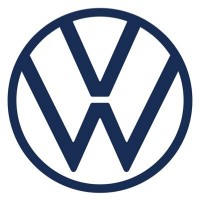
Volkswagen of America, Inc Company CyberSecurity Posture
vw.comFounded in 1955, Volkswagen of America, Inc., an operating unit of Volkswagen Group of America, Inc. (VWoA) is headquartered in Reston, Virginia. It is a subsidiary of Volkswagen AG, headquartered in Wolfsburg, Germany. VWoA’s operations in the United States include research and development, parts and vehicle processing, parts distribution centers, sales, marketing and service offices, financial service centers, and its state -of-the- art manufacturing facility in Chattanooga, Tennessee. The Volkswagen Group is one of the world's largest producers of passenger cars and Europe's largest automaker. VWoA sells the Atlas, Atlas Cross Sport, Golf GTI, Golf R, ID. 4, Jetta, Jetta GLI, Taos and Tiguan vehicles through approximately 652 independent U.S. dealers. Visit Volkswagen of America online at www.vw.com or media.vw.com to learn more.
Company Details
volkswagen-of-america-inc
4,601
209,388
3361
vw.com
1504
VOL_8437874
Completed
Between 650 and 699

 VAI Global Score (TPRM)
VAI Global Score (TPRM)XXXX

Description: Audi has been identified as shipping vehicles (up to at least 2024) with outdated and vulnerable software components, such as **FreeImage**, which lacks active maintenance and contains well-documented security flaws. These vulnerabilities expose connected cars to potential **remote exploits**, **data breaches**, and **system takeovers** via compromised firmware or third-party APIs. The insecure software violates the intent of **UNECE R155** (cybersecurity type approval) but persists due to weak enforcement and a disconnect between regulatory compliance and practical implementation. Attackers could exploit these flaws to manipulate critical vehicle systems (e.g., brakes, steering via CAN bus), exfiltrate sensitive driver data (location history, behavior patterns stored in cloud systems), or deploy **over-the-air (OTA) malware updates** affecting entire fleets. The systemic neglect of security standards—despite legal frameworks like **GDPR** and **ISO/SAE 21434**—undermines consumer trust and leaves drivers exposed to **large-scale cyber-physical attacks**, including scenarios where vehicle control could be hijacked, endangering lives and organizational liability.
Description: The cybercriminal group **Qilin** executed a targeted attack on **Volkswagen Group France**, compromising approximately **150 GB of sensitive data**, including **2,000 files** containing **confidential customer, employee, and business operation details**. The stolen data includes **personal information of vehicle owners** (names, addresses, emails) and **detailed vehicle records** (model designations, chassis numbers, license plates). Six sample documents were leaked as proof. The attack underscores the automotive industry’s vulnerability to **large-scale data breaches**, with extortionists increasingly targeting manufacturers for high-value intellectual property and customer data. The incident follows similar attacks on **BMW and Jaguar Land Rover**, highlighting systemic risks in the sector.
Description: Volkswagen Group is investigating a ransomware attack by the group **8Base**, which claims to have stolen and leaked sensitive corporate data. The breach allegedly occurred on **September 23, 2024**, with the group threatening to release the data publicly. While Volkswagen states its **core IT infrastructure remains secure**, the incident suggests a potential **third-party breach** affecting its global operations. The compromised data reportedly includes **invoices, accounting documents, personal employee files (employment contracts, personnel records), certificates, and confidentiality agreements**. If verified, this could expose **financial records and sensitive personal information** across Volkswagen’s brands (Audi, Porsche, Bentley, etc.), raising risks of **GDPR violations** (fines up to **4% of global revenue**), **supply chain vulnerabilities**, and **reputational damage**. 8Base, known for **double-extortion tactics**, typically gains access via **phishing or credential purchases** from cybercriminal marketplaces. Though no **customer data compromise** has been confirmed, the theft of **employee and financial data** poses significant legal and operational risks for the automotive giant.
Description: Volkswagen Group is investigating a ransomware attack by the group **8Base**, which claims to have stolen and leaked sensitive corporate and employee data. The breach allegedly occurred on **September 23, 2024**, with the threat actors exfiltrating confidential files, including **invoices, accounting documents, personal employee files, employment contracts, certificates, personnel records, and confidentiality agreements**. While Volkswagen states its core IT infrastructure remains secure, the incident suggests a potential **third-party breach**, likely targeting a supplier or subsidiary.The compromised data poses risks of **GDPR violations**, financial penalties (up to **4% of global revenue**), and reputational damage. Although no **customer data** has been confirmed as exposed, the theft of **employee personal and financial details** raises significant compliance and operational concerns. The attack underscores vulnerabilities in **supply chain security**, as 8Base, known for **double-extortion tactics**, typically gains access via **phishing or credential purchases** from cybercriminal marketplaces. The breach could impact Volkswagen’s global brands, including **Audi, Porsche, Bentley, and Lamborghini**, among others.
Description: Volkswagen, a leading global automaker, fell victim to a ransomware attack by the group **8Base** in September 2024. The attackers claimed to have breached Volkswagen’s systems, exfiltrating confidential files—including **invoices, accounting records, employee files, contracts, certificates, and confidentiality agreements**—before threatening to leak them on their dark web site. While Volkswagen asserted its **core IT infrastructure remained unaffected**, the incident raised concerns about potential **third-party system compromises** and the broader scope of the breach. The attack employed **Phobos ransomware** and **double-extortion tactics**, heightening risks of data exposure and operational disruption. The leaked information, though not immediately publicized, included sensitive internal documents, posing reputational and financial threats. The limited transparency in Volkswagen’s response further fueled speculation about the attack’s true impact on supply chain dependencies and partner ecosystems.
Description: The Maine Office of the Attorney General reported a data breach involving Volkswagen Group of America, Inc. on June 10, 2021. The breach, which occurred on March 10, 2021, affected over 3.3 million individuals, with approximately 90,000 individuals having sensitive personal information compromised, including driver's license numbers. The breach resulted from a vendor leaving electronic data unsecured between August 2019 and May 2021.
Description: The customer data of Volkswagen Group of America was breached in a cyberattack in March 20221. An unauthorized third party gained access to their servers and stole the information like phone numbers and email addresses, vehicle purchased, leased, or inquired about. More than 3.3 million customers in U.S. and Canadia were affected by the attack.
Description: A carmaker's online dealership portal was found leaking private customer information and vehicle data, allowing unauthorized access to remotely control car functions. A researcher discovered a flaw enabling the creation of an administrator account, granting access to customer data, financial details, and real-time location tracking of vehicles. The vulnerability also permitted pairing vehicles with mobile accounts to unlock cars, posing significant risks of theft and privacy breaches. The automaker fixed the issue after a week of reporting.
Description: A severe vulnerability in the automaker's dealer portal allowed unauthorized attackers to register dealer accounts, escalate privileges to national administrator, and remotely control vehicles. The flaw, stemming from hidden registration forms and weak session token management, enabled attackers to transfer car ownership and send remote commands via the vehicle enrollment API. This exposed all vehicles from 2012 onward with telematics modules, posing significant risks to customer safety and data integrity. The automaker has since patched the issue with stricter token validation and role-based access controls.


Volkswagen of America, Inc has 163.16% more incidents than the average of same-industry companies with at least one recorded incident.
Volkswagen of America, Inc has 56.25% more incidents than the average of all companies with at least one recorded incident.
Volkswagen of America, Inc reported 1 incidents this year: 0 cyber attacks, 0 ransomware, 0 vulnerabilities, 1 data breaches, compared to industry peers with at least 1 incident.
VAI cyber incidents detection timeline including parent company and subsidiaries

Founded in 1955, Volkswagen of America, Inc., an operating unit of Volkswagen Group of America, Inc. (VWoA) is headquartered in Reston, Virginia. It is a subsidiary of Volkswagen AG, headquartered in Wolfsburg, Germany. VWoA’s operations in the United States include research and development, parts and vehicle processing, parts distribution centers, sales, marketing and service offices, financial service centers, and its state -of-the- art manufacturing facility in Chattanooga, Tennessee. The Volkswagen Group is one of the world's largest producers of passenger cars and Europe's largest automaker. VWoA sells the Atlas, Atlas Cross Sport, Golf GTI, Golf R, ID. 4, Jetta, Jetta GLI, Taos and Tiguan vehicles through approximately 652 independent U.S. dealers. Visit Volkswagen of America online at www.vw.com or media.vw.com to learn more.

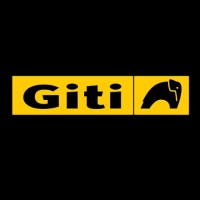
With tire experience of more than 60 years and a reputation for quality tire products worldwide, Giti Tire is truly a global tire company. We are ranked among the top companies in the tire industry, and take pride in being on the forefront of innovation and service. With motorsports success around
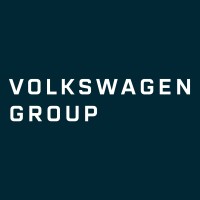
The Volkswagen Group with its headquarters in Wolfsburg is one of the world’s leading automobile manufacturers and the largest carmaker in Europe. The Group is made up of ten brands from seven European countries: Volkswagen, Volkswagen Nutzfahrzeuge, ŠKODA, SEAT, CUPRA, Audi, Lamborghini, Bentley, P
We don't just make history -- we make the future. Ford put the world on wheels over a century ago, and our teams are re-inventing icons and creating groundbreaking connected and electric vehicles for the next century. We believe in serving our customers, our communities, and the world. If you do, to

"Love of invention will never end." - Carl Benz Learn more about us as we continue to pioneer the future of driving excellence. Data privacy: mb4.me/provider_privacy Mercedes-Benz AG Mercedesstraße 120 70372 Stuttgart Germany Phone: +49 7 11 17-0 E-Mail: [email protected] For inquiries
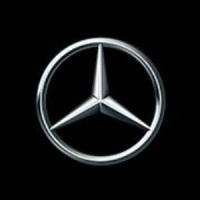
Mercedes-Benz Research and Development India (MBRDI) is the largest research and development centre for Mercedes-Benz Group AG outside of Germany. With over 27 years of innovation, MBRDI is contributing towards building the world’s most desirable cars, right here from India. Our mission - shape th

Lear, a global automotive technology leader in Seating and E-Systems, enables superior in-vehicle experiences for consumers around the world. Our diverse team of talented employees in 37 countries is driven by a commitment to innovation, operational excellence, and sustainability. Lear is Making eve
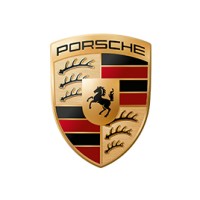
“In the beginning I looked around and could not find quite the car I dreamed of. So I decided to build it myself.“ This quote by Ferry Porsche sums up everything that makes Porsche what it is. It has been our guiding star for more than 75 years. Every day, we search for the best solution with commi
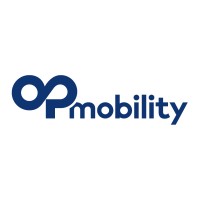
OPmobility is a world leader in sustainable mobility and a technology partner to mobility players worldwide. Driven by innovation since its creation in 1946, the Group is today composed of five complementary business groups that enable it to offer its customers a wide range of solutions: intelligent
FORVIA comprises the complementary technology and industrial strengths of Faurecia and HELLA. With over 300 industrial sites and 77 R&D centers, 150,000 people, including more than 35,000 engineers across 40+ countries, FORVIA provides a unique and comprehensive approach to the automotive challenge
.png)
Our commitment to audit quality. At EY US, we are bringing our bold vision for the future of audit to life with quality at the center,...
Every new Audi sold in the U.S. auto-unlocks all four doors when you shift into park. Owners cannot turn this off.
American University of Phnom Penh (AUPP) is excited to announce a strategic partnership with VW Software Technologies Co., Ltd. (VW),...
Post-quantum cryptography is now top of the priority list for cybersecurity leaders, but new research suggests some aren't taking it seriously enough.
Ethical hacking group Chaos Computer Club uncovered exposed data of 800000 electrical vehicle owners across the company's VW, Audi, Seat,...
On today's 2024 Q3 earnings call Google and Alphabet CEO Sundar Pichai shared more about the company's momentum and innovation, as well as our long-term focus...
Volkswagen Group of America Inc., Audi of America LLC, and digital marketer Shift Digital will pay $3.5 million to settle a class action...
Companies ranging from small automotive technology suppliers to major carmakers Ford and Volkswagen are pushing to shape coming rules from...
Volkswagen Group of America's wholly owned finance unit has agreed to pay $48.75 million to resolve a government lawsuit that accused the...

Explore insights on cybersecurity incidents, risk posture, and Rankiteo's assessments.
The official website of Volkswagen of America, Inc is http://www.vw.com.
According to Rankiteo, Volkswagen of America, Inc’s AI-generated cybersecurity score is 669, reflecting their Weak security posture.
According to Rankiteo, Volkswagen of America, Inc currently holds 0 security badges, indicating that no recognized compliance certifications are currently verified for the organization.
According to Rankiteo, Volkswagen of America, Inc is not certified under SOC 2 Type 1.
According to Rankiteo, Volkswagen of America, Inc does not hold a SOC 2 Type 2 certification.
According to Rankiteo, Volkswagen of America, Inc is not listed as GDPR compliant.
According to Rankiteo, Volkswagen of America, Inc does not currently maintain PCI DSS compliance.
According to Rankiteo, Volkswagen of America, Inc is not compliant with HIPAA regulations.
According to Rankiteo,Volkswagen of America, Inc is not certified under ISO 27001, indicating the absence of a formally recognized information security management framework.
Volkswagen of America, Inc operates primarily in the Motor Vehicle Manufacturing industry.
Volkswagen of America, Inc employs approximately 4,601 people worldwide.
Volkswagen of America, Inc presently has no subsidiaries across any sectors.
Volkswagen of America, Inc’s official LinkedIn profile has approximately 209,388 followers.
Volkswagen of America, Inc is classified under the NAICS code 3361, which corresponds to Motor Vehicle Manufacturing.
No, Volkswagen of America, Inc does not have a profile on Crunchbase.
Yes, Volkswagen of America, Inc maintains an official LinkedIn profile, which is actively utilized for branding and talent engagement, which can be accessed here: https://www.linkedin.com/company/volkswagen-of-america-inc.
As of November 27, 2025, Rankiteo reports that Volkswagen of America, Inc has experienced 9 cybersecurity incidents.
Volkswagen of America, Inc has an estimated 12,407 peer or competitor companies worldwide.
Incident Types: The types of cybersecurity incidents that have occurred include .
.png)
Angular is a development platform for building mobile and desktop web applications using TypeScript/JavaScript and other languages. Prior to versions 19.2.16, 20.3.14, and 21.0.1, there is a XSRF token leakage via protocol-relative URLs in angular HTTP clients. The vulnerability is a Credential Leak by App Logic that leads to the unauthorized disclosure of the Cross-Site Request Forgery (XSRF) token to an attacker-controlled domain. Angular's HttpClient has a built-in XSRF protection mechanism that works by checking if a request URL starts with a protocol (http:// or https://) to determine if it is cross-origin. If the URL starts with protocol-relative URL (//), it is incorrectly treated as a same-origin request, and the XSRF token is automatically added to the X-XSRF-TOKEN header. This issue has been patched in versions 19.2.16, 20.3.14, and 21.0.1. A workaround for this issue involves avoiding using protocol-relative URLs (URLs starting with //) in HttpClient requests. All backend communication URLs should be hardcoded as relative paths (starting with a single /) or fully qualified, trusted absolute URLs.
Forge (also called `node-forge`) is a native implementation of Transport Layer Security in JavaScript. An Uncontrolled Recursion vulnerability in node-forge versions 1.3.1 and below enables remote, unauthenticated attackers to craft deep ASN.1 structures that trigger unbounded recursive parsing. This leads to a Denial-of-Service (DoS) via stack exhaustion when parsing untrusted DER inputs. This issue has been patched in version 1.3.2.
Forge (also called `node-forge`) is a native implementation of Transport Layer Security in JavaScript. An Integer Overflow vulnerability in node-forge versions 1.3.1 and below enables remote, unauthenticated attackers to craft ASN.1 structures containing OIDs with oversized arcs. These arcs may be decoded as smaller, trusted OIDs due to 32-bit bitwise truncation, enabling the bypass of downstream OID-based security decisions. This issue has been patched in version 1.3.2.
Suricata is a network IDS, IPS and NSM engine developed by the OISF (Open Information Security Foundation) and the Suricata community. Prior to versions 7.0.13 and 8.0.2, working with large buffers in Lua scripts can lead to a stack overflow. Users of Lua rules and output scripts may be affected when working with large buffers. This includes a rule passing a large buffer to a Lua script. This issue has been patched in versions 7.0.13 and 8.0.2. A workaround for this issue involves disabling Lua rules and output scripts, or making sure limits, such as stream.depth.reassembly and HTTP response body limits (response-body-limit), are set to less than half the stack size.
Suricata is a network IDS, IPS and NSM engine developed by the OISF (Open Information Security Foundation) and the Suricata community. In versions from 8.0.0 to before 8.0.2, a NULL dereference can occur when the entropy keyword is used in conjunction with base64_data. This issue has been patched in version 8.0.2. A workaround involves disabling rules that use entropy in conjunction with base64_data.

Get company history
















Every week, Rankiteo analyzes billions of signals to give organizations a sharper, faster view of emerging risks. With deeper, more actionable intelligence at their fingertips, security teams can outpace threat actors, respond instantly to Zero-Day attacks, and dramatically shrink their risk exposure window.
Identify exposed access points, detect misconfigured SSL certificates, and uncover vulnerabilities across the network infrastructure.
Gain visibility into the software components used within an organization to detect vulnerabilities, manage risk, and ensure supply chain security.
Monitor and manage all IT assets and their configurations to ensure accurate, real-time visibility across the company's technology environment.
Leverage real-time insights on active threats, malware campaigns, and emerging vulnerabilities to proactively defend against evolving cyberattacks.




